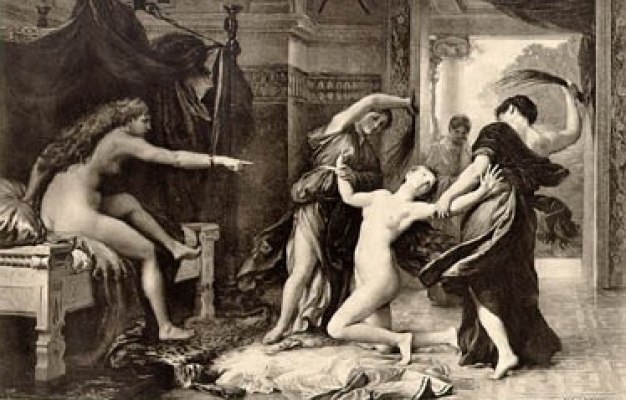 When a Greek myth has someone being whipped, is it sexual?
When a Greek myth has someone being whipped, is it sexual?
Well, if the whipping is ordered by Aphrodite, goddess of sexual love, then it generally is. The drawing is of Psyche being whipped while her lover’s mother, Aphrodite, watches. Aphrodite is the goddess of sexual love, and her son, Eros, is the god of lust, from whom we get the word “erotic”. And Eros is living with, and in love with, a very nice human girl called Psyche.
There’s a lot of symbolism going on in this “myth”, which like a lot of myths may have been invented relatively recently as a literary concoction. That is, it dates back to Apuleius’s novel The Golden Ass, written in the second century CE, rather than from time immemorial like, say, the myth of the great war between the Olympian gods and the Titans.
The reason I think the whipping is sexual, in its place in the book, is that Apuleius is very aware of different strands of sexuality, including “sadism”.
By making Aphrodite the spectator of Psyche’s whipping, Auileius is allowed to present it for the reader’s enjoyment and entertainment. As for the artist, he is definitely portraying the event as erotic.
I guess the central thread of the symbolism is that we all hope that Psyche, or “mind”, has some effect on our lusts and loves.
At other times, some of us want to be whipped and hurt and to sacrifice ourselves and suffer physically for our love. Which Psyche manages to do. And survive and find happiness.
The artist, François Boucher, was rumoured to be an admirer of whipped female skin, and his wife to be a participant in his pleasures. There are questions we ask about relationships and consent these days that simply weren’t asked in the eighteenth century, so we don’t know if Mme Boucher enjoyed those sessions. We can only hope she did.
